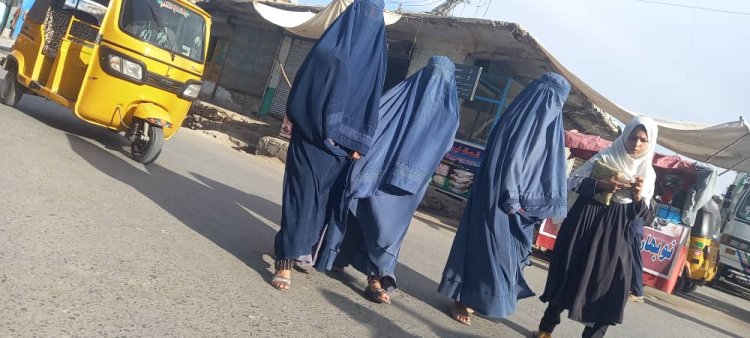Richard Bennett: Taliban’s Judicial System Enforces Gender Oppression

Richard Bennett, the UN Special Rapporteur on the situation of human rights in Afghanistan, emphasized in his latest report that the Taliban has systematically dismantled legal and protective frameworks to suppress the rights of women and girls.
On 16 June, during the 59th session of the UN Human Rights Council, Bennett presented his new report focusing on access to justice and protection for women and girls in Afghanistan.
According to the report, since the Taliban’s return to power in 2021, women and girls have been stripped of their fundamental rights, and support networks have either collapsed or been forced to operate underground.
Bennett stressed: “As part of its efforts to entrench an institutionalized system of gender-based oppression, persecution, and domination, the Taliban is instrumentalizing the legal and justice sectors in Afghanistan.”
He added that the current judicial system in Afghanistan has effectively become a tool for consolidating the Taliban’s gender-based control, leaving women—especially those in rural areas and from minority communities—without access to justice.
The UN Special Rapporteur described the Taliban’s policies as “crimes against humanity,” noting that the obstacles women and girls face in accessing justice and protection are so immense that the only reasonable conclusion is that the system has been deliberately designed to reinforce and sustain the Taliban’s repressive and misogynistic ideology.
Bennett welcomed efforts by the International Criminal Court and a number of countries to hold the Taliban accountable for human rights violations and crimes under international law, but stressed the urgent need for an additional, complementary international mechanism to support and strengthen these efforts.
Human Rights Watch also supported the call for such a mechanism, urging UN Member States to hold the Taliban accountable for its crimes against women and its broader human rights abuses.
In a statement presented at the session, Fereshta Abbasi, a researcher in Human Rights Watch’s Asia division, said that the people of Afghanistan—particularly women and girls—are facing one of the most severe human rights crises in the world. Referring to Bennett’s report, Abbasi stated: “Women and girls not only lack access to justice, but the justice system itself has been weaponized against them, used to perpetrate oppression and exclude them from society.”
Volker Türk, the UN High Commissioner for Human Rights, warned that the Taliban continues to pursue a systematic policy of erasing women and girls from public life in Afghanistan. He noted that women are being deprived of education, employment, freedom of movement, and participation in public life, and that their voices have effectively been silenced beyond the confines of their homes.
The European Union expressed deep concern over the human rights situation in Afghanistan, condemning the Taliban’s treatment of women and girls as a form of “systematic human rights violation.” The EU delegation echoed Bennett’s assessment, stating that the severe gender-based discrimination enforced by the Taliban may amount to crimes against humanity.
The EU called for an end to impunity in Afghanistan and underscored the importance of protecting ethnic, religious, and sexual minorities in the country.
At the same session, Fatima Amiri—a survivor of the attack on the Kaaj Educational Center—urged the international community not to recognize the Taliban. Highlighting the Taliban’s restrictions on women and girls, she called on the world to pay special attention to the human rights crisis unfolding in Afghanistan.
Parwana Ebrahimkhil, a human rights activist and one of the protesting women against the Taliban, emphasized the need to establish an independent accountability mechanism and to recognize gender apartheid in Afghanistan as a “crime against humanity.” She also urged the international community to focus on the situation of Afghan women and girls protesting both inside the country and in exile, especially in Iran and Pakistan.
